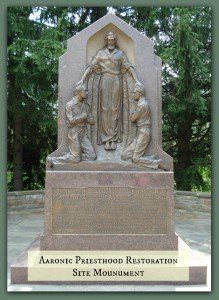This is a guest post by Jeffrey Collyer, who says about himself, “Not much to say really. I’m a middle-aged member of the Church, married to a fabulous woman with whom I do my best to raise 4 children, living in the UK. I’ve been writing my own blog about the Atonement for the last 6 months or so – www.allthingswitness.wordpress.com”
This is a subject which I feel is incredibly important, but it is a post I’ve found this a particularly difficult to write, so I hope that a) I can do it some justice, and b) those with particular insights and experience will comment*. It is a subject we rarely discuss, but which I feel we need to gain greater insight into, so that we are better able to comfort those in need.
A few months go I posted a couple of articles on my own blog on the subject of depression, what I consider to be one of the great plagues of our age, and how we can find relief through Christ. Those posts can be found here, and here. While depression is fortunately becoming increasingly discussed in the Church (not enough yet I think, but we’re making some positive progress), other aspects of mental illness or disability are generally discussed either rarely and on obscure internet forums, or (more likely) not at all.
But if Christ suffered for ALL of our pains, sicknesses, and afflictions, that means he suffered also for our mental illnesses and disabilities; it means that through His atoning sacrifice there is power for those suffering. Elder Joseph B Wirthlin said, “No grief is so great, no pain so profound, no burden so unbearable that it is beyond His healing touch.” (Special Witnesses of Christ, Ensign, April 2001). That includes those with Bipolar Disorder, Schizophrenia, and Personality Disorders; and it includes things like Autism, and so many other conditions. Some individuals with these and a host of other mental illnesses and disabilities are amongst the most vulnerable in our society and they, along with those who care for and are very close to them, often suffer intensely through their lives. Surely of those whom the Saviour would wish to comfort most in this life, these sons and daughters of our Heavenly Father are amongst the most precious to Him, and I’ve no doubt that He weeps for their pains and sorrows.
The seeds of my decision to write on this broader issue of mental illness and disability, and the Atonement, probably lie in a meeting I had some time ago with someone who suffered from Bipolar Disorder. The purpose or content of the meeting are not relevant, other than to say that this good man had suffered for many, many years. At one point during the meeting, I felt a prompting to say to him something along the lines of, “Brother………., I want to testify to you that our Saviour Jesus Christ suffered for all of our afflictions and infirmities. And in suffering for them, He also understands them. Christ knows what it is like to have Bipolar Disorder. He understands!”
Well, the reaction of this good man was something I hadn’t expected. He was a religious man already. He already believed in Christ, but now his eyes widened, and he replied in an astonished voice, “Really? Wow!”
Continue reading →


